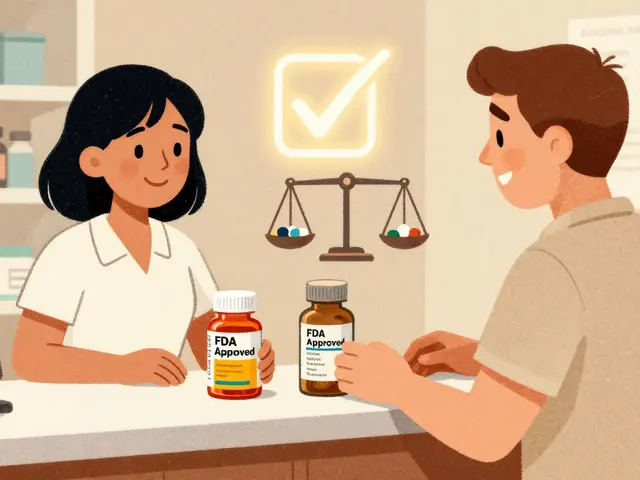Dementia Patients: Practical Medication and Care Tips
Caring for someone with dementia means paying close attention to medicines. One wrong pill, the wrong dose, or a missed dose can cause confusion, falls, or worse. This page gives straight, useful steps you can use today to keep medication safe, simplify routines, and spot problems early.
Medication safety every caregiver should do
Start by making a single, up-to-date list of every drug the person takes: prescription meds, over-the-counter pills, supplements, and creams. Keep the list by the phone, in the wallet, and on your phone. Always bring it to medical visits and when you call a pharmacy.
Use a weekly pill organizer or blister packs from the pharmacy. If memory is poor, set alarms on a phone or use a simple talking reminder. For people who refuse pills, ask the doctor for options: different formulations, smaller doses, or once-daily choices.
Watch for risky medicines. Drugs with strong anticholinergic effects (some antihistamines, older antidepressants, and certain bladder meds), benzodiazepines (sleep or anxiety pills), and some antipsychotics can make confusion worse or increase fall risk. Don’t stop any drug abruptly—talk to a doctor first.
Buying meds and avoiding pharmacy problems
If you order medicines online, choose a licensed pharmacy and keep the doctor’s prescription. Avoid sites that don’t require a prescription or that offer “too good to be true” prices. Check reviews, look for a physical address, and confirm delivery tracking. If a package looks tampered with, don’t use the meds—contact the pharmacy and the prescriber.
Talk to the pharmacist. Pharmacists can check for interactions, suggest lower-risk alternatives, and arrange pill packaging that matches the person’s routine. If the person sees multiple doctors, ask the pharmacist to review all meds for duplication or unsafe combos.
Keep medicines locked away or out of reach if the person is prone to taking extra doses. Use childproof bottles only if they don’t block your ability to open them quickly in an emergency. Store meds in a cool, dry place unless the label says otherwise.
Learn warning signs of medication trouble: sudden confusion, extreme sleepiness, dizziness, new balance problems, or changes in eating or bathroom habits. If these show up after a med change, call the prescriber or local urgent care.
Finally, schedule regular medication reviews—at least every six months or after any hospital stay. These reviews reduce unnecessary drugs and make sure treatments still match the person’s goals. Small, steady steps make a big difference in safety and quality of life for people with dementia.









